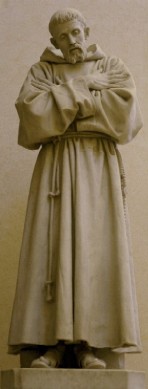.
EDIT - Poll closed, see results in above post.
Please vote in my poll once you've gone to Mass this Sunday (1st Sunday of Advent, December 2, 2007).
This is based on my post:
Advent betting pool and other rants.
Poll closes around noon centeral standard time Friday.
RS
Subscribe to:
Post Comments (Atom)






13 comments:
there isn't an option for what we did at our parish. The song used the lyrics of the verses of O Come, O Come Emmanuel to a different tune & with a totally different refrain.
& while the refrain music worked with its lyrics, the music for the verses stunk. (To put it nicely.)
Close enough. I'd count that as a "Yes" since you used the lyrics more representative of the last part of Advent and not the first.
RS,
Truly expected our parish to not sing that song :( The Engineer's Wife
I tried to not have it sung, but was overruled.
Half-Latin half-English Mass: no.
Yes.
We also used the O Come, O Come Emmanuel melody to sing "Holy, Holy, Holy" and "Lamb of God, You take away, etc."
By the way, I just responded to your months-old comments regarding Bishop Farrell and the TLM.
Will your story and my current remarks regarding Dallas and the TLM appear today on your blog?
In short, I was informed today by a Dallas diocesan official that TLM celebrations in Dallas are out of the question.
I'd have to say that the Dallas diocesan official is quite wrong. 1) The FSSP has been saying TLM's daily for years.
2) The diocese cannot forbid the TLM. Summorum Pontificum leaves the choice to say it up to the individual priest. The only way the diocese could forbid it is if the priest is grossly incompetent in saying the TLM. However, there are several priests in Dallas who are grossly incompetent in saying the Novus Ordo properly, so they don't have much to stand on if they they try to forbid the TLM for that reason.
I also know that at least three priests in the diocese have gone through the TLM training course at the FSSP seminary.
If you have any further information about who said this and what they said, I would would be interested.
You should write a letter to Ecclesia Dei about this, although you would really need evidence of what was said.
In response to your more detailed comment on the post:
http://romansacristan.blogspot.com/2007/05/bishop-kevin-ferrell-installed-as.html
1) A priest does not have to be completely fluent in Latin to say the Mass. Fr. Z. has gone over this numerous times on his blog. A priest can understand enough Latin to say Mass without being able to "speak" the language.
Not being fluent or able to speak Latin is not necessarily the same as being incompetent to say Mass.
2) Canon Law says that all seminarians are to be trained in Latin. I highly doubt that priests are THAT busy not to get in some study. Plus many who want to say the TLM have already had some basic Latin, so brushing up shouldn't be that hard for them.
3) Flatly, outright not allowing the TLM is not going to help vocations. That "closemindedness" will cause potential seminarians to look elsewhere.
4)"that a Dallas priest's time and responsibilities are too important to spend on the study of Latin and learing the TLM;"
or to translate that, "that a Dallas priest's time and responsibilities are too important to spend on the responsibility of knowing enough of the official language of the Latin Church and a form of the Mass allowed by the Church ... for over 600 years."
5) This "official" [I noticed you put it in quotes] does not sound very knowledgable about the motu proprio or liturgy.
If that really is Bishop Ferrell's attitude, I am sure that the clarifications expected from Ecclesia Dei will "change his mind." Although I won't believe that Bishop Ferrell says that until I have a better source than an "official." It will be interesting since he is on the Bishops Committee on Divine Worship (formerly known as the Bishops Committee on Liturgy).
If that really is Bishop Ferrell's attitude, I am sure that the clarifications expected from Ecclesia Dei will "change his mind."<>
Thanks for your response. I don't know whether the official had passed along the bishop's attitude regarding the TLM.
But the Dallas official informed me that the bishop is determined that any TLM celebrated in Dallas will be of the highest order. That is fine.
However, the official stated that any Dallas priest who wishes to celebrate the TLM will be expected to be fluent in Latin. (I can't say for sure that the official presented to me Bishop Farrell's thinking.)
Knowledge of the Latin text of the TLM alone would not suffice, according to what I was told.
The official insisted that priests in Dallas are in short supply, overworked and are not in position to take time to learn the TLM.
The attitude regarding the TLM that I encountered today reflected the discussions that I have had with priests at my parish.
There are more "important" things to do than train to celebrate the TLM.
Taking time to acquire even a minimal grasp of Latin is time wasted.
The FSSP in Dallas celebrates the TLM each Sunday at the chapel...don't expect more than that.
That, unfortunately, is the attitude that I have encountered in Dallas.
I also know that at least three priests in the diocese have gone through the TLM training course at the FSSP seminary.<>
That is encouraging information. Do you know whether the Dallas priests in question will soon celebrate the TLM?
The problem is that it is not the bihsop's decision to decide if his priests are too busy to learn the TLM. He can only say that if EVERY priest has told him saying "I'm just too busy."
However, if people are asking for the TLM and the priests aren't doing anything for them, then those people should go to the bishop, as it would be up to him to find a solution.
If he fails to provide a solution, then the people need to write to Ecclesia Dei in Rome stating that they are not receiving answers to their reasonable requests.
Again, it comes down to ignorance of what Summorum Pontificum says.
However, requests should be done by those who prefer the traditional Mass and want it regularly. I'd say people who just want to have it once to see what it is like don't have much footing.
If nobody asks for it, then the priests and bishops don't have to have it. However, to just say "we aren't going to do it" whether there have been requests or not, shows ignorance of the motu proprio.
As to whether those priests who have had the training will start having TLM's I have no idea.
(As an interesting side about the "learning Latin" I do know that at the last diocesan priests retreat, one of the Masses was a Novus Ordo in Latin. Now, I'd say if the priests know how to say the Novus Ordo in Latin, then they are qualified to say the Traditional Mass. (Or is the message that the Traditional Mass has to be held to standards, but the Novsu Ordo doesn't? That would be blashemous to say the Novus Ordo is to be taken less seriously than the Traditional Mass. It would also show a double standard.)
However, if people are asking for the TLM and the priests aren't doing anything for them, then those people should go to the bishop, as it would be up to him to find a solution.
If he fails to provide a solution, then the people need to write to Ecclesia Dei in Rome stating that they are not receiving answers to their reasonable requests.<
What can a bishop (and Rome) do when priests are unfamiliar with the Latin language?
The Holy Father said that "The use of the old Missal presupposes a certain degree of liturgical formation and some knowledge of the Latin language; neither of these is found very often."
"What can a bishop (and Rome) do when priests are unfamiliar with the Latin language?"
Teach them. I find it hard to believe a priest is too busy to know the form of his own rite. This was supposed to be done in the seminary:
Can. 249 The program of priestly formation is to provide that students not only are carefully taught their native language but also understand Latin well and have a suitable understanding of those foreign languages which seem necessary or useful for their formation or for the exercise of pastoral ministry. [emphasis added]), but since it hasn't it might be time for priests to be formed now.
I am sure that there are priests who would want to say this form of Mass. And I am sure they could find the time to study if they needed it.
Yes, the Holy Father did say that, part of that presupposition is that the priests were taught Latin in the seminary. If they weren't, well, the bishop needs to figure out some way to correct that. It is his responsibility. I think the "priest shortage" line is a bit overused IMHO.
The fact of the matter is that, the ball has been dropped. It's up to the priests and bishops to pick it back up. Whether they want to or not, it is their responsibility and duty to honor the pope's motu proprio.
Post a Comment